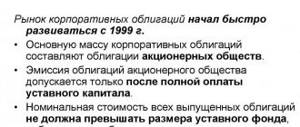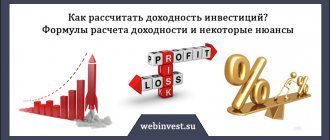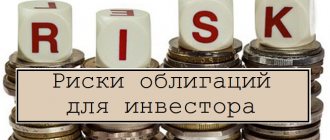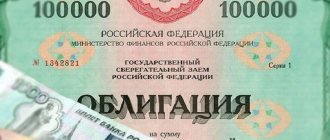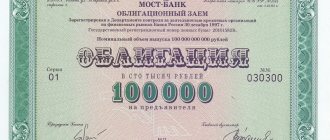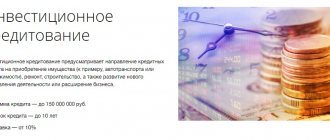Greetings to the inquisitive reader! This article will consider another type of debt securities. I will tell you what international bonds are, consider the very essence of these instruments, why they are needed and why issuers are ready to issue them.
I will explain whether it is profitable for a private investor to buy them, I will outline in detail how things stand with the entry threshold for investing in such bonds and what ways there are to enter this market with a small capital. I will touch on possible income from international bonds and taxation features.
What it is
When an enterprise (or an entire state) needs to attract additional finance, it is necessary to find someone who is able to provide it on a reimbursable basis. One of the options for a cheap loan is issuing bonds: they are bought by an individual or another enterprise, lending money to the issuer of these securities and receiving interest income.
International bonds are debt securities that are placed on foreign markets and in a currency foreign to the issuer.
Eurobonds
This type of international bonds is distinguished by the currency of issue – foreign for the issuer and the borrower. Using an example, it looks like this: a certain Russian company, which makes payments in Russian rubles, issues securities on the market in euros, dollars or pounds in order to attract capital from foreign countries.
Foreign bonds
Such debt securities are placed on the foreign market in the national currency of the issuer. Again our Natural Resources PJSC, which issued bonds and placed them on the Kazakhstan stock exchange in rubles. This subtype of international debt securities will be foreign bonds.
Global bonds
This is a classic example of “two peas for a spoon”: bonds are placed both on the Eurobond market and on the national market/markets of other countries.
How they work
An international bond as a debt instrument is a loan where there is a set interest rate for the use of money in the form of a coupon. The creditor of a company, country or municipality can be the population represented by private investors who buy bonds, lend money to the issuer of the securities, and receive income.
Or legal entities - other corporations, large and medium-sized businesses that use temporarily free finances to generate additional income.
The principle of operation of international bonds and ordinary ones is the same, only in the case of the first issuers and investors there will be residents of different states.
Why do issuers and investors need them?
A company or municipality, when issuing international bonds, aims to obtain a loan in a simplified form without collateral or collateral at a very favorable interest rate. And by placing debt securities without a maturity date, such capital can generally be considered eternal. Specifically, international bonds give the issuer the opportunity to attract investors from all over the world, expanding its zones of influence.
There are also many benefits that a private investor receives:
- the ability to work with foreign exchange instruments;
- protection from inflation of the national currency;
- purchasing foreign bonds without entering a foreign stock market.
Corporations borrow for future use
Compared to the OFZ market, the volume of placements in the corporate sector this year turned out to be slightly more modest: over 11 months it grew by approximately 11%.
In total, since the beginning of COVID-19, corporate bonds worth 3 trillion rubles have been placed in Russia, Moscow Exchange estimates. True, this figure takes into account placements of bank bonds and non-market issues, which somewhat distorts the picture. According to Cbonds, the total volume of new market bond issues placed specifically by Russian companies over the 11 months of 2021 exceeded RUB 1.8 trillion. Source: Cbonds
— We at Sovcombank plan to close more than 120 bond placement transactions by the end of the year. This is a record for us,” admits Mikhail Avtukhov, Deputy Chairman of the Board, Head of the Corporate and Investment Unit, Member of the Board of Sovcombank. — In this regard, 2021 on the corporate bond market was no worse than 2019. Yes, we saw a serious failure in placements in April, when the deal with OPEC+ collapsed, low oil prices, overestimation of the lockdown and the prospects of the pandemic. But in fact, this was the only month in which the number of placements was less than the level of 2019 (27 vs 32). At the same time, the markets recovered very quickly and compensated for this failure.
— Every year, about 150–170 issuers are placed on the Russian bond market. Of these, approximately 30–40 issuers are new. That is, 25–30% of companies entering the market every year turn out to be debutants,” estimated Anna Kuznetsova, Deputy Chairman of the Board of Rosselkhozbank. — 2020 is no exception. This year the list of issuers has been replenished with interesting, worthy names. This year’s innovation is that promising Russian companies in the technology sector are increasingly entering the market - Maxima Telecom, Softline, QIWI, HeadHunter and others.
True, most issuers still go to the market for money not because they have a good life, bankers admit: in the face of falling revenue due to declining demand, a reduction in business volumes and investment programs, companies need to somehow refinance old debts.
Source: Gazprombank presentation
And taking into account the fact that on average in the corporate sector rates have decreased by about 1.4%, companies are in a hurry to attract cheap money here and now, fearing that in the medium term the cost of borrowing for them may rise again.
Sources: Cbonds, Expert RA
How to make money on international bonds
If the investor's goal is to create passive income, then the best option would be to receive a coupon.
But even if we ignore coupon income, international debt securities are a very popular tool for speculation in the market. If you buy liquid securities, then selling them on the exchange to other participants will not be difficult. The main question is the selling price of international bonds.
Exchange trading does not like beginners. In order not to lose your capital, you need to study the theory and understand fundamental analysis (the words are complicated, but in fact you just need to gain knowledge and experience).
If you practice for some time, you can make a good profit from the difference between the nominal and market prices. Or from the exchange rate difference in prices in foreign currency: when international bonds are bought and sold at the same price, for example in dollars, but the dollar exchange rate to the national currency is growing.
How much can you earn
Income from international securities can be 2, 3, or even 4 times higher than the profit on bank deposits. The final figure will depend on what transactions are performed. If the investor receives only a coupon payment, then the interest, on average, will vary from 4 to 9 per annum. If he constantly reviews his portfolio and speculates competently in the market, then his income will increase to 20–30%.
Is it profitable to buy
Yes, it is profitable, but it is very important to correctly determine the entry point into the market: when the market price of a security exceeds the face value by 50–60%, the investor’s benefit decreases sharply, because the coupon is calculated precisely from the face value. The most profitable purchase will be considered international paper purchased at a discount (cheaper), or with a price 10–15% higher than the face value.
Is it possible to buy these bonds on an IIS?
Yes. By opening a brokerage account of the IIS type, an investor can purchase any type of bonds, including international ones. We'll talk about how to do this correctly below.
Where to see the list of bonds available for purchase
To find out what international instruments are available in Russia, you can use the following sources:
- Moscow Exchange website (section “Eurobonds”);
- website of the broker who has opened the IIS;
- aggregator sites Rusbonds and Cbonds.
How much is 1 bond worth?
The minimum value of 1 international debt paper is $1000. Regardless of the type of bond: Eurobonds (state OFZs in foreign currency, municipal or corporate bonds) or foreign bonds, the minimum threshold is not reduced.
But it can increase due to the number of securities included in one trading lot. For example, a government Eurobond has a par value of $1000, and the minimum lot consists of 100 units, it turns out that the minimum purchase amount is $100,000.
Bond market: growth in spite of
It’s a paradox, but despite the economic crisis, which was accompanied by a global recession, a drop in demand, a dramatic decline in commodity prices, and another round of ruble devaluation by 20%, 2020 turned out to be one of the most successful years for bonds in recent years.
The main talisman of the Russian bond market over the past 12 months has undoubtedly been the Central Bank. The fact is that for the first time during the crisis, the regulator not only did not raise the rate, but, on the contrary, aggressively reduced it: over the 10 months of 2021, it dropped by as much as 200 basis points. p. to a historical minimum in the entire history of modern Russia - 4.25% (for comparison, for the entire 2019, the rate was reduced by 125 bp).
The debt market responded with dignity to such unprecedented generosity on the part of the regulator: it confidently surpassed the 30 trillion ruble mark.
bonds in circulation. As a result, the volume of the domestic bond market almost reached a record 30% of GDP for Russia. Sources: Bank of Russia, Cbonds, Moscow Exchange
Pros and cons of international bonds
I will list the advantages of this financial instrument:
- The yield on international bonds is higher than the interest on a bank deposit.
- Part of the income is not taxed.
- The risk associated with investing in debt securities is much lower than when working with other exchange-traded instruments.
- International bonds allow you to invest in foreign companies without entering the stock market of other countries.
- Buying Eurobonds gives you the opportunity to make money on the exchange rate of the dollar, euro or other currency against the ruble.
- Priority of payment upon distribution of company profits or its liquidation: payment on shares (ordinary and preferred) will occur after.
It’s also impossible to remain silent about the disadvantages:
- The income is lower than that of other types of investments in the financial market.
- Investments in international bonds are not insured by the Deposit Insurance Agency.
What types of bonds exist in the USA
There are several types of debt securities in the United States:
- Treasury bonds. With their help, the state budget, army, government programs are financed, and other loans are repaid.
- Municipal. They are hosted by municipalities (states, cities, counties). Such securities are issued to finance a project.
- Corporate bonds. Published by enterprises and organizations. The security for them is the profit that will be received from investing borrowed funds.
- Savings coupons. They are purchased by the Federal Government.
- Mortgage-backed bonds. Payments are made from mortgage obligations.
Where and how can I buy
The process of buying international bonds has certain subtleties. You can buy it on the stock exchange or as part of derivative market instruments: mutual funds and ETFs. I’ll tell you a little more about each.
Independently on the Moscow Exchange
There is only one direct purchase option - on your own on the exchange. Well, or almost independently: an individual must make all transactions through a broker - a licensed intermediary.
Stages:
- Open a brokerage account:
- standard: income is taxed at a rate of 13%;
- IIS: no taxes and the ability to receive a personal income tax deduction.
- Top up your account balance in foreign currency through the broker's cash desk.
- Install the QUIK trading terminal and configure it correctly (the broker will help you do this).
- Buy international papers by selecting the ones you need in the quotation sheet.
As part of the mutual fund
An alternative way to invest money in international bonds is to purchase a unit (share) in a mutual investment fund. Such an organization has a management company that collects funds from participants and distributes them among instruments in a selected portfolio.
The investor does not have the opportunity to choose the instruments included in the portfolio, but also does not bear all the risks associated with the selected securities.
The disadvantage of working with shares is large commissions for all transactions performed. On average, commissions can range from 2.5% to 4.8%, including an annual portfolio management fee of 1.5%. But an undeniable advantage can be considered the ability to invest small amounts from 1000 rubles. at the very beginning of working with markets.
Examples of mutual funds in the Russian Federation:
- Mutual Fund "BCS International Bonds" with a share value of 1005 rubles;
- “QBF Eurobonds” with a share of 12,093 rubles;
- “VTB – Eurobond Fund” with a share of 13.5 rubles.
ETF
ETF is a very reliable and popular instrument in the West, which is just beginning to gain a foothold in the Russian market. Its essence is simple - it is an investment fund whose shares are traded on the stock exchange. A private investor who wants to purchase several international bonds at once buys shares of this fund and receives a diversified portfolio of the best instruments.
A big plus of ETFs is low transaction fees (0.125–0.8% of the amount) and annual maintenance fees (up to 1%).
Operating funds in Russia:
- FinEx Tradable Russian Corporate Bonds. Fund for corporate Eurobonds of Russian issuers (stock ticker FXRU, fund shares in dollars).
- FinEx Tradable Russian Corporate Bonds. Fund for corporate Eurobonds of Russian issuers (stock ticker FXRB, fund shares in rubles).
How to choose
To decide which specific international security to invest in, you need to be able to conduct a simple assessment of the effectiveness of the investment using the following criteria:
- Denomination
- Market price. If your investments are short/medium-term in nature and you do not plan to hold the bonds for a very long time (the period depends on the specific debt security), then it is better not to buy them at the peak of the price, otherwise you will not avoid monetary losses. It is advisable to buy international bonds during periods of declining prices.
- Reliability of the issuer. Profitability will directly depend on it: the greater the trust in the company, the lower the interest rate. There is a very low probability (which, however, cannot be completely excluded) that the debt on federal loan bonds (OFZ), or large companies in the oil and gas industry (Gazprom, Lukoil), or well-known banks (Sberbank, Vnesheconombank) will not be repaid.
- Coupon size. A bond's coupon is the interest income from its face value. The larger the coupon, the more money your investment will bring you.
- The number of coupon payments per year and its maturity date.
- Accumulated coupon income (ACI) reflects a constant increase in income, that is, it shows the coupon income not on the day of coupon payment, but its amount that is currently available. NKD is reimbursed upon the purchase of outstanding bonds. For example, investor Sergey decided to replenish his investment portfolio and bought international bonds from investor Artem, who held them for 4 months after the coupon was paid. It turns out that the NKD has been accumulating for 4 months, and Sergei will have to pay Artem the market price of the paper and the accumulated income.
- Liquidity in the market: As a rule, instruments that are easily converted into cash are traded well above their face value.
- Taxation (for a full description, see the paragraph on taxes).
Best brokers
With such rapid development of the Internet and remote work, the investment culture is beginning to improve in Russia. Thus, a large number of banks and specialized financial organizations offer brokerage services to the public who want to increase their funds and understand exchange instruments.
A selection of top-notch brokers below!
Opening of Promsvyaz by Rick BKS Keith Tinkoff Finam
One of the mastodons of the market. Excellent web portal, very low commissions and adequate support. I recommend!
Investment department of a famous bank. There are no particular advantages, but there are no disadvantages either. Average.
One of the very first Russian brokers. The commissions are high, but there are interesting auto-following strategies.
Another very large broker. Good support and low commissions are their strong point.
Small but reliable broker. It is great for beginners because it does not impose its services and the commissions are very low. I recommend.
The youngest broker in the Russian Federation. There is a cool app for investors, but the fees are too high.
The largest investment company in Russia. The largest selection of tools, your own terminal. Commissions are average.
Can it be purchased by individuals?
We will answer right away - yes, it is possible, through a broker. But it wasn’t always like this, there were some obstacles, let’s talk about everything in order.
At the beginning of its journey, the Eurobond market existed exclusively outside the exchange (it was interbank). However, since 2014, this type of securities entered circulation on the Moscow Exchange, that is, it became available on the official exchange market of Russia. The initial lots had a very high price, the minimum lot price was $100,000.
In 2015, the Moscow Exchange, in response to the fact that a huge number of individuals wanted to purchase Eurobonds, agreed with Russian issuers to reduce the minimum amount to $1,000 . This opportunity arose thanks to investor schemes involving pooling funds and making transactions on the interbank market, with the purchase of Eurobonds at the old price of $100,000. The creation of such instruments has made the purchase of Eurobonds more accessible to individuals; any private investor can now invest in Eurobonds.
Despite their availability, the main buyers of Eurobonds are large investment, insurance or pension funds and other large players. As we have already said, the face value of one paper is usually $1000. But there are securities with a par value of $200,000 per bond, their yield is better, but private investors can rarely afford to buy them at such a high cost.
Calculation of purchases using an example
Corporation N international bond issued in 2021, maturity year 2026, par value $1000, coupon 3.250%. At the moment, it is trading at a price of 104.39% of the par value (this is how the market price of the bonds is reflected), and the accumulated coupon yield is 1.16%.
If today an investor decides to purchase 1 bond, he will have to pay $1043.9 for it at market value and $11.6 NKD. For the year, he will receive $32.5 in income (including $11.6), but the percentage income for this person will not be 3.250%, but 3.113%, since the purchase price for him was above par.
What are they and why are they produced?
My mini-dictionary for useful conversation:
- Bonds are securities that are purchased for a certain period of time for a fixed income. At the end of this period, the entire bond amount is returned to the investor. They are different - ruble and foreign currency, coupon and discount, state and corporate.
- Currency bonds are securities issued in a foreign currency, for example, Europe. They are also called Eurobonds (in slang - Eurobonds).
- Ministry of Finance bonds are government securities issued by the Russian government.
The purpose of issuing any bonds, including foreign exchange ones from the Ministry of Finance, is to obtain borrowed funds. The state also needs to attract capital to solve economic and social problems. Eurobonds are a more profitable loan than at US Federal Reserve rates.
Investor reviews
Both professional market participants and beginners agree that Eurobonds are a reliable and promising instrument for trading and investing. Many popular bloggers today who talk about the stock market and investments include them in their portfolio, noting the advantages of international bonds in the current time of crisis.
Advantages and disadvantages
Let us list the advantages of foreign currency bonds over bank deposits:
- The yield on foreign currency deposits is currently 1–2, maximum 3% per annum, for Eurobonds 4–5%.
- For the bond, the investor (individual) will receive the entire face value in foreign currency. And the amount of the deposit in the bank will be calculated at the Bank of Russia exchange rate in rubles.
- With a foreign currency bond, you can return the funds in full at any time. And the investor, under the terms of the agreement, may lose part of the accumulated income.
Advantages of currency bonds over conventional Russian bonds:
- Reliability of Eurobonds. Issuers will not spoil their reputation by ignoring international obligations on foreign currency securities.
- Currency appreciation. If the dollar or euro increases in price, the investor (individual) receives not only the face value, coupon income, but also additional profit from the increase in the value of the currency. This is especially noticeable in long bonds.
The disadvantages of Eurobonds include:
- large lots (large funds are needed to purchase bonds);
- insufficient selection of Eurocurrency securities;
- low liquidity of most foreign currency bonds, especially corporate ones.
Underwater rocks
Individuals who have purchased Eurobonds of the Ministry of Finance much higher than their par value may, if they sell them, end up at a loss if the market price falls. And this is quite realistic, because the duration is significant: over 10 years, the exchange rate, rates of the Central Bank of the Russian Federation and the US Federal Reserve can change, and inflation is not excluded.
Taxation of international bonds for individuals
If international bonds are purchased by an individual, then upon receiving income from them, a citizen of the Russian Federation must pay personal income tax (13%). It is important to know that the object of taxation may be:
- The difference in the purchase price and the sale price: I bought a bond with a par value of $1000 for $900, after redemption, I must pay 13% tax on the difference.
- Accumulated coupon income: bought for $1000, held for 2 months, during which $20 profit accumulated, then sold for $1000+22. The tax base will be $22 of income.
- Exchange rate differences when selling international bonds.
- Bond coupon income (not to be confused with NKD!): if you hold bonds for a long time and receive a coupon income payment, then you do not need to pay tax on its amount. A small note: in order to get more income from such an investment instrument, it is more profitable not to sell it ahead of time with NKD, which is taxed at a rate of 13%, but to wait for the issuer to pay the coupon.
One of the obvious advantages of conducting investment activities is the personal income tax deduction, which the owner of an individual investment account can receive every year in the amount of 52 thousand rubles, that is, reimburse the tax he paid back from the budget.
There are plenty of subtleties with tax deductions; a separate article is needed to talk about them all. But the main thing you need to remember: the amount of the deduction is 400,000 rubles, that is, by replenishing the IIS with 500,000 rubles and buying the same international bonds with them, you can return 13% from 400,000 by filing a 3-NDFL declaration.
What to expect in 2021?
Despite the acceleration of inflation in December, banks still expect another reduction in the Central Bank rate in the first quarter of next year and the continuation of ultra-loose monetary policy in Russia throughout 2021.
If, thanks to vaccines, the pandemic situation can be brought under control, this will launch the process of economic recovery: companies will begin to unfreeze their investment programs and will try to attract cheap financing. So the activity of Russian issuers in the next 12 months promises to be no lower than 2020.
And taking into account the fact that next year investors in the bond market should receive about 3 trillion rubles. new funds from redemptions and coupon payments, investor demand for new issues will definitely continue.
Which is better – foreign bonds or dividend stocks
There is no clear answer to this question. Stocks and bonds are different in nature. The first is an equity security, the second is a debt security. Accordingly, the rights and opportunities of the investor will also vary.
A share in the hands of a minority investor does not give him the right to directly participate in management decisions, and the risks associated with owning such a security are higher than the risks associated with bonds. The priority of payments plays a decisive role: first of all, the company repays debts on loans, then pays dividends.
For novice investors, international bonds will be a more convenient and reliable instrument than dividend stocks.
Categorization of global bonds
Global bonds are grouped into developed country bonds and emerging market bonds. Bonds issued by corporations and governments in developed countries are issued with varying maturities and credit qualities. Some of these bonds are denominated in US dollars. However, most of them are denominated in the currencies of their countries.
Developing country bonds are usually issued by the sovereign government, rather than by corporations. These bonds are denominated in dollars and offer high interest rates due to the perceived higher level of risk of investing in bonds issued by an economically unstable country.
Top 5 most profitable Eurobonds
- TRANSCAPITALBANK-2020: issuer public joint-stock company "TRANSKAPITALBANK", par value $1000, currency USD, price 61.26%, yield to maturity 14.78%, coupon 10%.
- ROSSELKHOZBANK-2023: issuer JSC Rosselkhozbank, par value $1000, currency USD, price 108.9%, yield to maturity 8.13%, coupon 8.500%.
- BOMBARDIER-2025: issuer BOMBARDIER INC, par value $1000, currency USD, price 100.08%, yield to maturity 7.87%, coupon 7.5%.
- GAZPROMBANK-2019: issuer JSC Bank GPB, par value $1000, currency USD, price 57.88%, yield to maturity 7.67%, coupon 8.750%.
- ALLIANCE OIL-2020: issuer Alliance Oil Company, Ltd., par value $1000, currency USD, price 91.54%, yield to maturity 6.94%, coupon 7%.
Top 5 international bonds without maturity date
- CB VOSTOCHNY-PERPETUAL: issuer PJSC CB Vostochny, par value $1000, currency USD, price 54.86%, coupon 10%.
- VTB-PERPETUAL: issuer PJSC VTB Bank, par value $1000, currency USD, price 107.49%, coupon 9.500%.
- TINKOFF BANK-PERPETUAL: issuer JSC Tinkoff Bank, par value $1000, currency USD, price 104.41%, coupon 9.250%.
- ALFA-BANK-PERPETUAL: issuer JSC ALFA-BANK, par value $1000, currency USD, price 99.402%, coupon 6.550%.
- DEUTSCHE BANK-PERPETUAL: issuer DEUTSCHE BANK AG, par value $200,000, currency USD, price 87.47%, coupon 6.250%.
